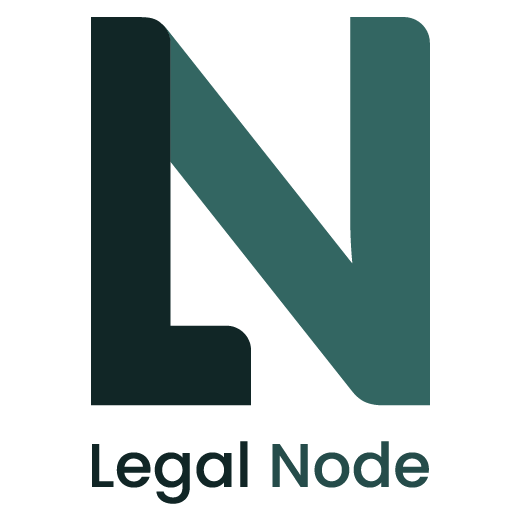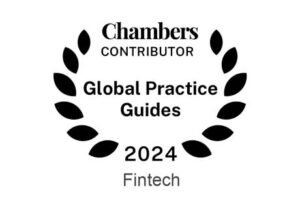The bridge between regulation and technology
Legal Node is a leading company in advisory services for digital assets and tokenization
Our team of legal and technological experts provides solutions to companies across all sectors for their projects, from conception to execution and growth.
How can we help?
Asset Tokenization
The future of capital markets
Discover new ways to finance assets with all the benefits offered by blockchain technology, and how we can assist you to structure your tokenization project.
Regulatory Analysis
Regulation of services linked to digital assets.
Assisting you to navigate the different regulatory frameworks applicable to your services (including MiCAR, Crowdfunding, MiFID, AML, and DeFi).
Digital Security
Risk analysis and cybersecurity mitigation.
Apply the appropriate legal measures to your business to ensure resilient services in compliance with applicable regulations (including GDPR, DORA, and AI).
Our team
Legal Node has positioned itself at the forefront of legal advisory in financial technology, creating the bridge between regulation and technology and ensuring that each project complies with applicable national and European regulations.
Our team of legal and technological experts, with extensive experience in both fintech regulation and traditional financial regulation, offers strategic, tailor-made solutions for each project.
From conception to execution and growth, we assist companies across all industries and sectors in turning their vision into reality, ensuring a process that is agile, secure, and compliant with current regulations.
Nombre Apellido
Cargo
Nombre Apellido
Cargo
Nombre Apellido
Cargo
Nombre Apellido
Cargo
Trusted by













Frequently Asked Questions
Tokenization is the process of representing a valuable asset on a blockchain (e.g., a real-world asset, a digital asset, a development project, intellectual property, etc.) through tokens.
A security token is a digital asset that qualifies as a financial instrument and represents an underlying value. Security tokens are governed by traditional financial regulations and are fully programmable.
A Security Token Offering (STO) is a process through which security tokens are offered to investors at a determined price. An STO involves the issuance (or representation) of a financial instrument in the form of a digital asset on a blockchain.
Security tokens differ from other crypto tokens because they are financial instruments and, as such, are subject to traditional regulations based on the principles of “same activity, same risks, same rules” and technological neutrality. Security tokens also typically differ in their purpose and intended use, being primarily designed as investment instruments or as representations of ownership, similar to a traditional bond, share, or certificate.
The competitive advantage of tokenization lies in its ability to represent virtually any valuable asset as a token — from real estate and artwork to carbon credits, investment funds, bonds, and other valuable items.
Tokenizing assets through an STO offers numerous advantages:
More efficient: faster and more cost-effective transactions
More transparent: ability to trace and verify transfers
Greater liquidity: increased marketability and distribution potential
Inclusive: democratization of investments
More flexible: ability to program tailor-made financial instruments
Legal certainty: operates within existing regulatory frameworks
Each STO project varies in duration depending on its structure. However, based on our experience, most STO projects are completed within 3 to 6 months.
The Markets in Crypto-Assets Regulation (MiCAR) is the EU regulation that governs the issuance and provision of services related to crypto-assets and stablecoins (including ARTs, EMTs, and utility tokens)..
Asset-Referenced Tokens (ARTs), as defined by MiCAR, are a type of crypto-asset that does not constitute electronic money and seeks to maintain a stable value by referencing another value or right, or a combination of both, including one or more official currencies.
Electronic Money Tokens (EMTs), as defined by MiCAR, are crypto-assets that aim to maintain a stable value by referencing the value of an official currency.
Utility tokens, under MiCAR, are crypto-assets used to access a good or service provided by their issuer.
According to MiCAR, a Crypto-Asset Service Provider (CASP) is a legal person or business entity whose activity or business consists of professionally providing one or more crypto-asset services to clients, and who is authorized to do so.
MiCAR regulates 10 types of activities or services. These include:
Custody and administration of crypto-assets on behalf of clients
Operation of a trading platform for crypto-assets
Exchange of crypto-assets for funds
Exchange of crypto-assets for other crypto-assets
Execution of orders related to crypto-assets on behalf of clients
Placement of crypto-assets
Reception and transmission of crypto-asset orders on behalf of clients
Advice on crypto-assets
Portfolio management of crypto-assets
Provision of crypto-asset transfer services on behalf of clients
Regulation (EU) 2022/2554 of the European Parliament and of the Council, commonly referred to as DORA, was introduced to strengthen the digital operational resilience of the financial sector. DORA aims to establish a common legal framework that harmonizes EU regulation on cybersecurity and ICT risks, in order to enhance digital operational resilience.
Why work with us?
Expertise
We bring together professionals trained at top-tier international law firms, combining deep legal and technical knowledge to deliver the highest-quality services efficiently.
Experience
Our team has advised on more than 40 tokenization projects and has supported clients across various sectors in tokenization initiatives since 2017.
Network
We have collaborated with the most experienced and recognized service providers in the industry, upholding the highest standards of cybersecurity, regulatory compliance, and technical excellence.

More information
Contact


